Tuesday Feb 17, 2026
Tuesday Feb 17, 2026
Monday, 19 February 2024 03:17 - - {{hitsCtrl.values.hits}}
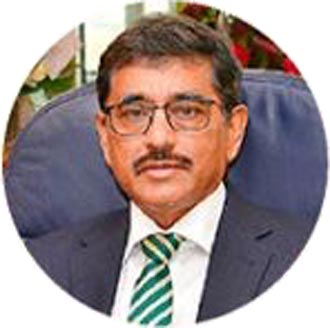
Dr. Nandalal Weerasinghe
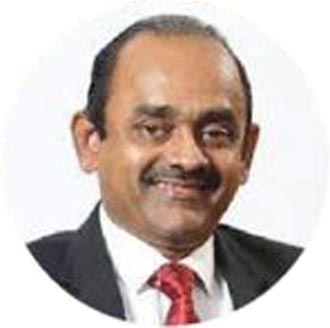
Sujeewa Rajapakshe

Shashi Kandambi

Dilshan Rodrigo
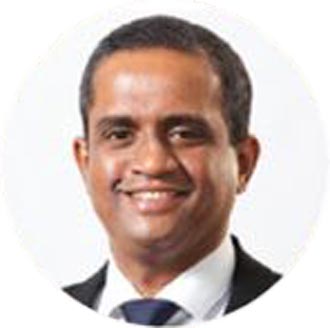
Nalin Samaranayake
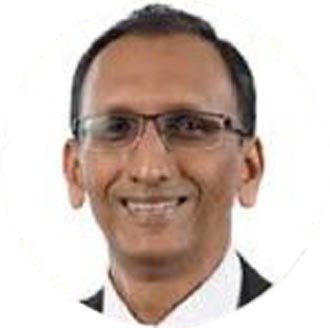
Sujeewa Mudalige

Mahendra Perera

Dr. Anil Baddevithana

Anura Lokuhetty
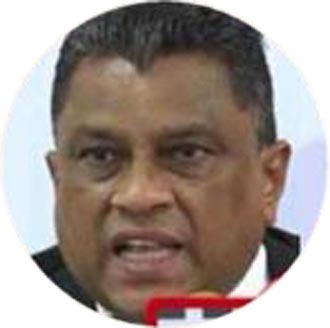
Maura Gunawansa
The debate over parate action got heated to a new level on Saturday at a Daily FT co-hosted webinar with the regulator and banks defending the move and borrowers insisting immediate suspension.
The response to webinar title ‘Can suspending parate rights help MSME recovery’, from the Central Bank Governor Dr. Nandalal Weerasinghe was a categorical “No.”
In his keynote, Weerasinghe also attempted to make a clear distinction between MSMEs and what he described as “anti-parate activists.” This remark however drew flak from MSME representatives in the panel at the webinar co-organised by SLID– ACCA, The International Chamber of Commerce Sri Lanka together with Colombo MBA Association, CIMA, AAT, and CA Sri Lanka.
“We are engaging with SMEs who need to be supported with a lot of measures by CBSL and the Government to manage through difficult times. Anti-parate activists are different to me. Suspending parate rights will not help MSME recovery,” Dr. Weerasinghe said adding that the latter will only support anti parate activists who had borrowed but unable to service and intend to default or had turned to wilful defaulters.
The CBSL Chief stressed that parate action is indeed important for debt recovery by banks as well as ensuring access to finance for MSMEs. He also said banks are funded 80% by depositors hence safeguarding their interest was paramount whilst supporting deserving and genuine MSMEs.
“Parate is used only as a last resort to deal with wilful defaulters and unviable borrowers. Parate is the legal means for banks to recover overdue loans and prevent mismanagement of bank financing and diversion of business funds to other purposes loan repayment,” charged Dr. Weerasinghe.
He also went to the extent that the existing old parate law must be strengthened further to reduce time to take over assets pledged and divest same or enterprises to a new owner to ensure business continuity and minimise job losses. “Borrowers can go bankrupt but not the enterprises,” CBSL Governor opined.
Apart from a more efficient parate law, Dr. Weerasinghe also stressed the need for bankruptcy laws which are successful in transferring unviable business to those who can run it better.
The CBSL Chief also listed a host of measures extended since 2019 for MSMs who had to deal with the effects of multiple crises starting from Easter Sunday attacks, COVID-19 pandemic and the political cum economic crises in 2022.
He revealed that the value of loans which got relief/restructured was Rs. 5.8 trillion. With parate action suspended for four years, CBSL chief said in 2023 the number of actions were only 557 involving loans worth Rs. 38 billion which was 0.4% of total credit and 2.7% of impaired loans. With banks asked to set up Business Revival Units, he said over 2,500 enterprises with Rs. 85 billion in debt had been supported via this initiative.
It was revealed that new guidelines to make Business Revival Units more successful and effective will be announced following stakeholder consultation. Additionally, the ADB funded-National Credit Guarantee Institution will extend support to viable MSMEs.
The webinar comprised Peoples Bank Chairman Sujeewa Rajapakshe, Independent Director and PWC Sri Lanka former Managing Partner Sujeewa Mudalige, Union Bank PLC Deputy CEO Dilshan Rodrigo, Asia Council of Tourism Chairman and The Hotel Association of Sri Lanka Past President Anura Lokuhetty, National Trade Protection Council President Mahendra Perera, National Savings Bank General Manager/CEO Shashi Kandambi, British Sri Lanka Maldives Forum for Business and Trade Managing Director Dr. Anil Baddevithana, Commercial Bank PLC Credit Supervision and Recoveries Assistant General Manager Nalin Samaranayake, and President’s Counsel Maura Gunawansa.
Representative of commercial banks too reiterated that parate action was the last resort but prior to that every possible support was extended to MSMEs. They also pointed out that banks are subject to multiple regulatory requirements. Another observation was that banks don’t enjoy taking over distressed assets or collateral given the cost of holding and not wanting to end as real estate owners.
National Trade Protection Council President Mahendra Perera was most vocal for MSMEs. He said all MSMEs are in an anti-parate activists group hence it was unfair on the part of the CBSL Governor to attempt to differentiate.
Perera also said that Sri Lanka as a country went bankrupt and is laboriously negotiating for several years for debt restructuring both external and domestic as relief. In the same spirit, the Government must be considerate of MSMEs who went into default due to multiple crises caused by failure of political leadership and factors beyond the control of the private sector.
The MSMEs who account for over 50% of the GDP and 45% of the jobs also need relief by way of restructure like Sri Lanka if not there will be chaos following closures.
He called for an immediate suspension of the parate action for a specific period thereby giving breathing space, rescheduling the debt, write off a portion of interest and extended period of payment. The webinar also heard another suggestion that a certain component of distressed debt must be written off. For example, the tourism sector which is dominated by SMEs actual debt was Rs. 300 billion and post moratorium and higher interest rates etc., the outstanding figure has ballooned to Rs. 700 billion.
Sujeewa Mudalige stressed someone has to bear the cost of such a move and questioned who it be – whether the Government, tax payers, depositors, or bank shareholders. The support for multilateral donor agencies was stressed as well. He too emphasised the need for proper bankruptcy law and a new Companies Act.
Dr. Anil Baddevithana spoke extensively about the need for a national bad bank or an agency to take over distressed debt/assets and restructure. He said parate execution must be selectively enforced for wilful defaulters and unviable businesses and not across the board. He also flagged off bad lending practices on the part of banks for higher NPLs.
The need for a collaborative effort between banks and borrowers was also stressed by President’s Counsel Maura Gunawansa.
The webinar was moderated by CA Sri Lanka Vice President Tishan Subasinghe and ICC Sri Lanka Immediate Past Chairman and SLID Senior Vice Chairman Dinesh Weerakkody.
The webinar is available for viewing at https://fb.me/e/1Kj6JvyGA